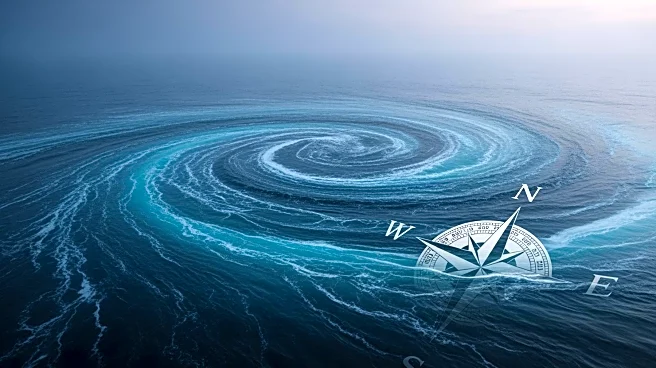What's Happening?
The Icelandic government has declared the slowing or potential collapse of the Atlantic Meridional Overturning Circulation (AMOC) as a national security threat. This decision was made following warnings
from scientists about the destabilizing effects of melting Arctic ice and freshwater runoff from Greenland on the AMOC. The AMOC is crucial for moderating winter temperatures in Europe, and its collapse could lead to severe cold in Northern Europe and disrupt global rainfall patterns. Iceland's Climate Minister, Jóhann Páll Jóhannsson, emphasized the existential risk posed by the AMOC's potential failure, which has been added to the agenda of the country's National Security Council.
Why It's Important?
The slowing or collapse of the AMOC could have significant implications for Europe and beyond. It could lead to extreme cold winters and summer droughts in Western Europe, disrupt global rainfall patterns, and accelerate warming and ice loss in Antarctica. The economic impact could be severe, affecting agriculture, fisheries, and marine transport. The decision by Iceland to treat the AMOC as a national security threat highlights the urgency of addressing climate change and its potential to disrupt global systems.
What's Next?
Iceland's National Security Council will coordinate response plans across ministries responsible for food and energy supplies, infrastructure, and transport resilience. Other countries, including Ireland, Norway, and the UK, are also increasing their focus on the AMOC, with the UK committing £81 million to research climate tipping points. Scientists warn that the tipping point for the AMOC's collapse could be within the next 10 to 20 years, underscoring the need for rapid action to reduce emissions.
Beyond the Headlines
The potential collapse of the AMOC could trigger long-term shifts in global climate patterns, affecting millions of people who rely on stable rainfall for agriculture. It also raises ethical questions about the responsibility of nations to address climate change and protect vulnerable populations. The situation underscores the interconnectedness of global systems and the need for international cooperation to mitigate climate risks.









